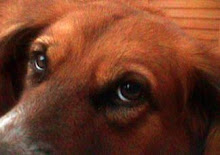In der Kategorie "Natur - Einzelfoto" gewann dieses Bild von der
US-Amerikanerin Jenny E. Ross den ersten Preis. Es zeigt einen
männlichen Eisbären, der an einer Klippe der russischen Doppelinsel
Nowaja Semlja auf der Jagd nach Trottellummeneiern ist. Die Inseln
liegen westlich der innereurasischen Grenze im Nordpolarmeer.
A male polar bear climbs precariously on the face of a cliff above the ocean at Ostrova Oranskie in northern Novaya Zemlya, attempting to feed on seabird eggs. This bear was marooned on land and unable to feed on seals--its normal prey--because sea ice had melted throughout the region and receded far to the north as a result of climate change.
This photo of Jenny Ross won in the category Nature, Singles.
Die Ausdehnung des arktischen Meereises im September 2011 war mehr als 2,43 Millionen Quadratkilometer unter dem Durchschnitt, der von 1979 bis 2000 dokumentiert wurde. Das Eis ist ebenfalls in der Dicke dramatisch gesunken, anfällig für weiteres Schmelzen. Im September 2011 war nach einer Schätzung von Wissenschaftlern das Gesamtvolumen an arktischem Meereisder das niedrigste überhaupt - es lag bei 66% unter dem durchschnittlichen Volumen von 1979 bis 2010.
The arctic sea ice extent in September 2011 was more than 2.43 million square kilometers below the average documented from 1979 through 2000. The ice has also decreased dramatically in thickness, making it more vulnerable to further melting. In September 2011, the total arctic sea ice volume estimated by scientists was the lowest ever – 66% lower than the average volume from 1979 through 2010.
Jenny Ross ist keine Unbekannte,
wenn es um das Dokumentieren der Überlebensstrategien von Eisbären
geht, ebenfalls letztes Jahr habe ich bereits eine ganze Serie ihrer
Fotos heruntergeladen, in denen es einmal mehr um Kannibalismus bei
Eisbären geht, ein Phänomen, das traurigerweise in den letzten 8 Jahren immer häufiger beobachtet wird. -
Jenny Ross is no stranger when it comes to documenting the survival strategies of polar bears, only some months ago I downloaded a whole series of her photographs related once again to cannibalism in polar bears, a phenomenon which sadly has become more frequent during the past 8 years. -
A polar bear drags the corpse of a tiny polar bear cub that it has caught and killed. Cannibalism is not unknown in polar bears - scientists have recently observed that the behaviour is on the increase among the animals
Polar Bear Swimming in the Chukchi Sea
Während eines Sturms in der russischen Chukchi-See, kämpfte eine erwachsene Eisbärin damit, ihren Kopf über den Wellen zu behalten. Schwimmen in rauer See fern vom Land, und noch weiter weg vom nächsten Meereis, ist sie mit einem ungewissen Schicksal konfrontiert.
"During a storm in Russia’s Chukchi Sea, an adult female polar bear struggled to keep her head above the waves. Swimming in rough seas far from land, and even farther from the nearest sea ice, she faced an uncertain fate."
Please read Jenny Ross' article about "The Plight of the Ice Bear"
Please read Jenny Ross' article about "The Plight of the Ice Bear"
Sources:
- Nature at its most savage.../Daily Mail 09.12.2011
- Polar Bears and Cannibalism Revisited/Discovery News 08.12.2011
- The Plight of the Ice Bear/National Geographic 10.01.2012
Related:
- Arctic
Summer Tales 2011...Cliffhanger Part 2/ 02.09.2011
All photos © Jenny Ross

















































Keine Kommentare:
Kommentar veröffentlichen